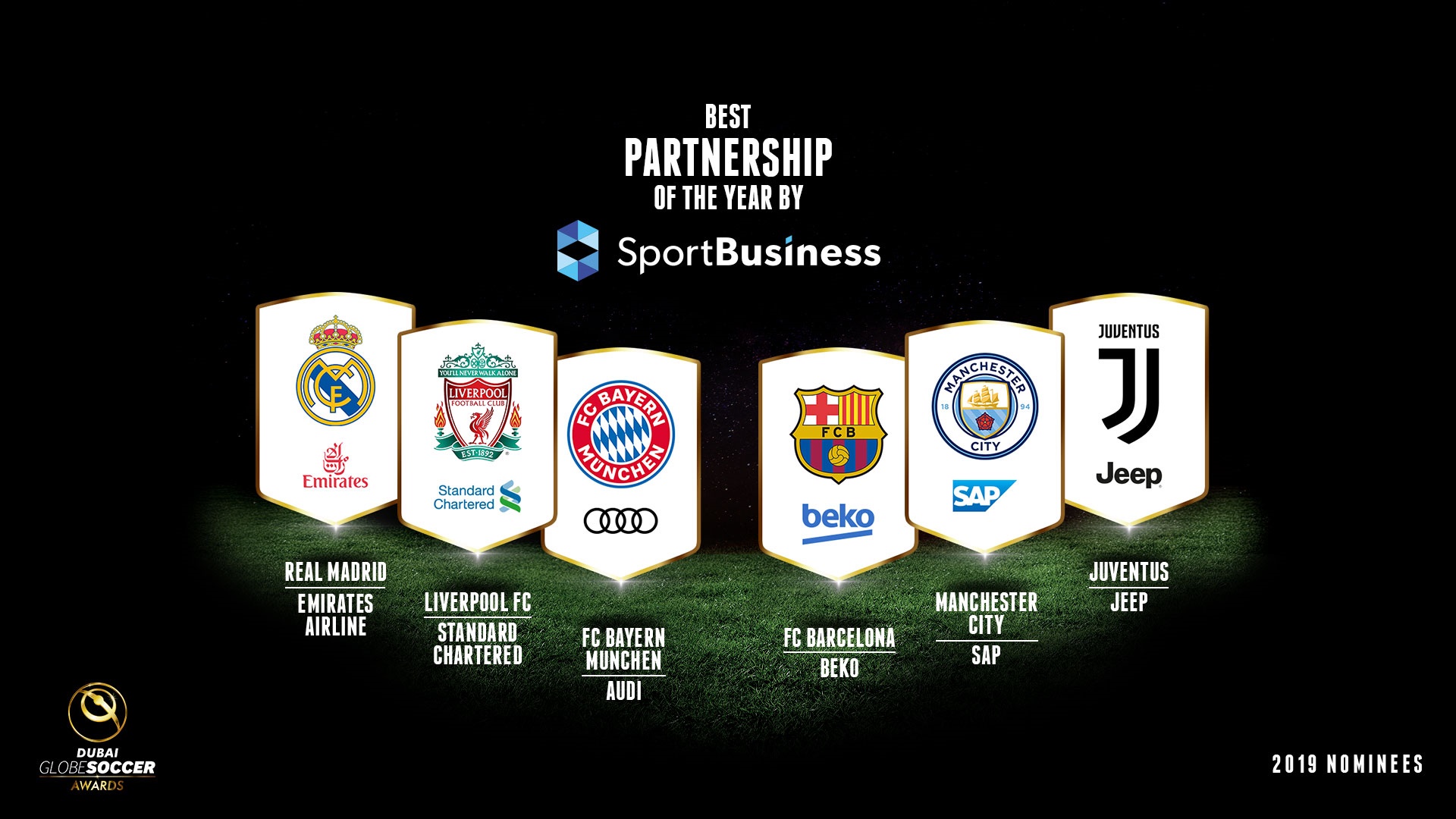Introduction: The Multifaceted Connection Between Sports and Wealth
Sports and wealth are two concepts often perceived as distinct and unrelated. However, a closer examination reveals a multifaceted connection that goes beyond the obvious financial gains associated with professional sports. Participation in sports can contribute to both tangible and intangible wealth, encompassing financial prosperity, improved mental health, and enhanced social connections.
To begin with, sports offer a plethora of career opportunities, with athletes, coaches, sports medicine specialists, and sports marketers being just a few examples. Pursuing a career in sports, however, requires more than just passion. It demands education, training, and dedication, as competition is fierce, and success is often determined by one’s ability to continuously learn, adapt, and innovate.
Beyond career opportunities, sports provide a platform for athletes and sports organizations to leverage their brand and influence through sponsorships and endorsements. By effectively managing their public image and engaging with their audience through marketing, public relations, and social media, athletes and sports entities can secure lucrative deals that contribute to their financial wealth.
Moreover, the world of sports offers various investment opportunities, from fantasy leagues and sports memorabilia to stock ownership in sports teams. While these investments come with inherent risks, they also present the potential for substantial rewards for those who approach them with a well-informed and responsible strategy.
Perhaps the most valuable aspect of sports participation, however, lies in the intangible benefits it provides. Regular physical activity has been proven to improve mental health, increase happiness, and foster stronger social connections. By engaging in sports, individuals not only build character, discipline, and resilience but also develop skills that can be applied to other areas of life, contributing to long-term success and overall wealth.

Sports as a Lucrative Career Path: Turning Passion into Profession
Sports not only provide entertainment and recreation but also offer a plethora of career opportunities for those with a passion for athletics. The sports industry is a diverse and thriving sector, encompassing various professions that cater to different interests and skill sets. By pursuing a career in sports, individuals can turn their passion into a profitable and fulfilling profession.
One of the most visible career paths in sports is that of a professional athlete. Athletes compete in various sports, showcasing their skills and abilities in front of a global audience. While the path to professional sports is often challenging and requires dedication, hard work, and natural talent, the rewards can be substantial. Professional athletes can earn substantial salaries, endorsements, and sponsorships, making sports a lucrative career choice for those who excel in their respective sports.
However, becoming a professional athlete is not the only way to make a career in sports. The sports industry offers a wide range of professions that cater to different interests and skill sets. For instance, coaches play a critical role in developing and guiding athletes, helping them hone their skills and achieve their full potential. Sports medicine specialists, such as physiotherapists, trainers, and doctors, provide essential medical care and support to athletes, ensuring their health and well-being both on and off the field.
Moreover, sports marketers and public relations specialists play a crucial role in promoting sports events, athletes, and organizations. By leveraging their marketing and communication skills, they help build brand awareness, engage with fans, and secure sponsorships and endorsements. Sports journalists, photographers, and broadcasters also contribute to the sports industry, providing coverage and analysis of sports events and athletes.
To pursue a successful career in sports, education, training, and dedication are essential. A degree or diploma in a relevant field, such as sports management, kinesiology, or marketing, can provide a solid foundation for a career in sports. Additionally, internships, volunteering, and networking can help individuals gain practical experience, build connections, and enhance their skills.
In conclusion, sports offer a lucrative career path for those with a passion for athletics. By pursuing a career in sports, individuals can turn their passion into a profitable and fulfilling profession. Whether as an athlete, coach, sports medicine specialist, or sports marketer, the sports industry offers a wide range of professions that cater to different interests and skill sets. With education, training, and dedication, individuals can build a successful career in sports and enjoy the financial and personal rewards that come with it.

The Power of Sports Sponsorships and Endorsements: How Sports Make You Wealthier
Sports sponsorships and endorsements are a significant aspect of the sports industry, providing athletes and sports organizations with substantial financial gains. By leveraging their brand and influence, athletes and sports organizations can secure lucrative deals, enhancing their wealth and expanding their reach.
Sports sponsorships refer to the partnership between a sports organization or event and a company or brand. In exchange for financial support, the sponsor’s brand is prominently displayed on the sports team’s uniforms, equipment, or venue. Sponsorships can also include promotional events, product launches, and social media campaigns, providing the sponsor with increased visibility and brand recognition.
Endorsements, on the other hand, involve athletes promoting a product or service. Athletes can endorse a wide range of products, from sports equipment and apparel to food and beverages. Endorsements can take the form of television commercials, print ads, social media posts, and personal appearances. By endorsing a product, athletes can earn substantial sums of money, enhancing their wealth and influence.
To maximize the opportunities presented by sports sponsorships and endorsements, athletes and sports organizations must focus on building their brand and influence. Marketing, public relations, and social media play a critical role in promoting athletes and sports organizations, engaging with fans, and securing sponsorships and endorsements. By leveraging their social media following, athletes can build their brand and reach a wider audience, increasing their appeal to potential sponsors and endorsers.
However, sports sponsorships and endorsements also come with risks. Athletes must be mindful of their behavior both on and off the field, as any negative publicity can damage their brand and reputation. Additionally, athletes must ensure that their endorsements align with their values and beliefs, as endorsements can impact their public image and credibility.
In conclusion, sports sponsorships and endorsements offer substantial financial gains for athletes and sports organizations. By building their brand and influence, athletes and sports organizations can secure lucrative deals, enhancing their wealth and expanding their reach. However, athletes must be mindful of the risks associated with sponsorships and endorsements, ensuring that their behavior and endorsements align with their values and beliefs. By adopting a strategic approach to sponsorships and endorsements, athletes and sports organizations can leverage their brand and influence to build wealth and achieve long-term success.

Investing in Sports: From Fantasy Leagues to Stock Markets
Sports have become a significant industry, generating billions of dollars in revenue each year. With the growing popularity of sports, there are numerous investment opportunities available for individuals looking to capitalize on this trend. In this article, we will explore various investment options within the sports industry, including fantasy sports, sports memorabilia, and stock ownership in sports teams.
Fantasy Sports
Fantasy sports are online games where participants create their own teams using real-life players and compete against other teams in a league format. According to the Fantasy Sports & Gaming Association, there are over 60 million fantasy sports players in the United States and Canada alone. With the growing popularity of fantasy sports, there are several ways to invest in this industry.
One option is to invest in fantasy sports platforms such as ESPN, Yahoo, or CBS Sports. These platforms generate revenue through subscription fees, advertising, and sponsorships. Another option is to invest in daily fantasy sports (DFS) operators such as DraftKings and FanDuel. DFS operators offer short-term contests, allowing participants to draft a new team for each game. DFS operators generate revenue through entry fees and rake.
Sports Memorabilia
Sports memorabilia, such as autographed jerseys, baseball cards, and game-used equipment, have become a popular investment option for sports enthusiasts. According to PWCC Marketplace, the sports memorabilia market has grown at an annual rate of 11% over the past decade. With the growing popularity of sports memorabilia, there are several ways to invest in this industry.
One option is to invest in sports memorabilia directly by purchasing items from reputable dealers or auctions. Another option is to invest in sports memorabilia funds, which pool investors’ money to purchase high-value items. Sports memorabilia funds offer diversification and professional management, making it easier for investors to enter the market.
Stock Ownership in Sports Teams
Stock ownership in sports teams is another investment option for individuals looking to capitalize on the sports industry. According to Forbes, the value of the top 50 sports teams in the world has grown at an annual rate of 8% over the past decade. With the growing value of sports teams, there are several ways to invest in this industry.
One option is to invest in publicly traded sports teams such as the New York Yankees or Manchester United. These teams are listed on major stock exchanges, making it easy for investors to purchase shares. Another option is to invest in private equity firms that own sports teams. Private equity firms often offer investment opportunities to high-net-worth individuals, allowing them to invest in a portfolio of sports teams.
Risks and Rewards
Investing in sports comes with risks and rewards. The sports industry is subject to various factors, such as changes in consumer behavior, economic conditions, and regulatory policies. However, with the right investment strategy, investors can potentially earn substantial returns. To mitigate risks, investors should conduct thorough research, diversify their portfolio, and seek professional advice.
Tips for Responsible Investing
When investing in sports, it’s essential to adopt responsible investing practices. Here are some tips for responsible investing:
- Set clear investment objectives and risk tolerance levels.
- Conduct thorough research and due diligence.
- Diversify your portfolio across different investment options.
- Seek professional advice from financial advisors or investment managers.
- Monitor your investments regularly and adjust your strategy as needed.
In conclusion, investing in sports can be a lucrative opportunity for individuals looking to capitalize on the growing popularity of sports. By exploring various investment options such as fantasy sports, sports memorabilia, and stock ownership in sports teams, investors can potentially earn substantial returns. However, investing in sports comes with risks and rewards, and it’s essential to adopt responsible investing practices to mitigate risks and achieve long-term success.

The Intrinsic Wealth of Sports: Health, Happiness, and Social Connections
Sports participation offers a wealth of intangible benefits that extend beyond financial gains. Regular physical activity has been shown to improve mental health, increase happiness, and foster stronger social connections. According to a study published in the Journal of Clinical Psychiatry, individuals who engage in regular physical activity are less likely to experience symptoms of depression and anxiety. Additionally, sports participation has been linked to increased self-esteem, confidence, and resilience.
Moreover, sports provide a unique platform for building character and discipline. Through sports, individuals learn the importance of teamwork, communication, and leadership. They also develop critical thinking and problem-solving skills, as well as the ability to handle stress and pressure. These qualities are not only essential for success in sports but also in other areas of life, including personal relationships, education, and career.
Sports participation also offers opportunities for social connections and networking. Through team sports, individuals can build meaningful relationships with their teammates, coaches, and opponents. These connections can lead to new friendships, business partnerships, and career opportunities. According to a study published in the Journal of Sport Behavior, individuals who participate in team sports are more likely to report higher levels of social support and satisfaction.
Furthermore, sports participation can contribute to overall health and well-being. Regular physical activity has been shown to reduce the risk of chronic diseases such as obesity, diabetes, and heart disease. According to the Centers for Disease Control and Prevention, regular physical activity can also improve sleep quality, increase energy levels, and enhance cognitive function.
In conclusion, sports participation offers a wealth of intangible benefits that can contribute to overall health, happiness, and social connections. By embracing the intrinsic wealth of sports, individuals can cultivate character, discipline, and resilience, and build meaningful relationships with others. So, whether you’re a seasoned athlete or a casual participant, remember that sports make you wealthier in more ways than one.
The Impact of Sports on Entrepreneurship and Business Acumen
Sports participation can have a significant impact on entrepreneurship and business acumen. The skills and experiences gained through sports can translate to success in the business world. According to a study published in the Journal of Business and Entrepreneurship, athletes are more likely to become entrepreneurs than non-athletes.
One reason for this correlation is that sports participation teaches individuals valuable skills such as leadership, teamwork, and communication. Athletes learn to work towards a common goal, collaborate with their teammates, and communicate effectively with their coaches. These skills are essential for success in business, where collaboration, leadership, and effective communication are critical.
Moreover, sports participation teaches individuals how to handle pressure and stress. Athletes are no strangers to high-pressure situations, such as competing in high-stakes games or tournaments. These experiences can help individuals develop resilience and the ability to perform under pressure, which are valuable skills in the business world.
Furthermore, sports participation can foster a growth mindset, which is essential for success in entrepreneurship. Athletes learn to set goals, work towards them, and overcome obstacles. These experiences can help individuals develop a growth mindset, which is the belief that abilities and intelligence can be developed through dedication and hard work.
Successful entrepreneurs with a sports background include Kevin Plank, the founder of Under Armour. Plank, a former football player at the University of Maryland, applied the lessons he learned on the field to his business, such as the importance of hard work, discipline, and teamwork. Another example is Sara Blakely, the founder of Spanx, who credits her success to her background in sports. Blakely, a former high school soccer player, learned the importance of perseverance, goal-setting, and visualization through sports.
In conclusion, sports participation can have a significant impact on entrepreneurship and business acumen. By developing valuable skills such as leadership, teamwork, communication, resilience, and a growth mindset, individuals can translate their sports experiences to success in the business world. So, whether you’re an athlete or a sports enthusiast, remember that sports can make you wealthier in more ways than one.
Cultivating a Wealth Mindset Through Sports
Adopting a wealth mindset in sports can lead to greater success, both on and off the field. A wealth mindset is a positive, growth-oriented approach to life that emphasizes the importance of continuous learning, goal-setting, and visualization. By cultivating a wealth mindset, athletes can unlock their full potential and achieve their goals, both in sports and in other areas of life.
One way to cultivate a wealth mindset in sports is to set clear, specific goals. Goals provide direction and motivation, and they help athletes stay focused and committed to their pursuits. By setting goals, athletes can create a roadmap for success and measure their progress along the way. It’s important to set both short-term and long-term goals, as this can help athletes stay motivated and engaged over time.
Another way to cultivate a wealth mindset in sports is through visualization. Visualization is the practice of creating mental images of success and achievement. By visualizing themselves achieving their goals, athletes can build confidence, reduce anxiety, and improve their performance. Visualization can also help athletes stay focused and motivated, even in the face of challenges and setbacks.
Continuous learning is also an essential component of a wealth mindset. By continually learning and expanding their knowledge, athletes can stay ahead of the competition and improve their skills. This can include learning new techniques, studying the strategies of successful athletes, and seeking feedback and guidance from coaches and mentors. By embracing a growth mindset, athletes can view challenges and setbacks as opportunities for learning and improvement.
Successful entrepreneurs with a sports background, such as Kevin Plank and Sara Blakely, have applied the lessons they learned on the field to their businesses. By adopting a wealth mindset, athletes can develop the skills and experiences necessary for success in other areas of life. These skills include leadership, teamwork, communication, resilience, and a growth mindset. By cultivating these skills, athletes can become successful entrepreneurs, business leaders, and community leaders.
In conclusion, cultivating a wealth mindset in sports is essential for achieving success, both on and off the field. By setting clear goals, practicing visualization, and embracing continuous learning, athletes can unlock their full potential and achieve their dreams. So, whether you’re an athlete or a sports enthusiast, remember that sports can make you wealthier in more ways than one. By adopting a wealth mindset, you can unlock the full potential of sports and create a brighter, more prosperous future.

Conclusion: Embracing the Wealth-Generating Potential of Sports
In conclusion, sports can make you wealthier in many ways, both tangible and intangible. By pursuing a career in sports, athletes and professionals can leverage their skills and experiences to achieve financial gains and personal growth. Sports sponsorships and endorsements provide opportunities for athletes and organizations to build their brand and secure lucrative deals. Investing in sports, from fantasy leagues to stock markets, can also yield significant returns, but it’s essential to approach these opportunities with a responsible and informed mindset.
Beyond financial gains, sports participation can improve mental health, increase happiness, and strengthen social connections. By building character, discipline, and resilience, athletes can translate these qualities to success in other areas of life, including entrepreneurship and business acumen. Adopting a wealth mindset in sports, characterized by goal-setting, visualization, and continuous learning, can further enhance these benefits and lead to greater success, both on and off the field.
To fully unlock the wealth-generating potential of sports, it’s essential to approach sports participation with a long-term, sustainable mindset. By focusing on both tangible and intangible benefits, athletes and sports enthusiasts can create a brighter, more prosperous future. So, whether you’re an athlete, a coach, a fan, or an investor, embrace the wealth-generating potential of sports and explore the possibilities today.

